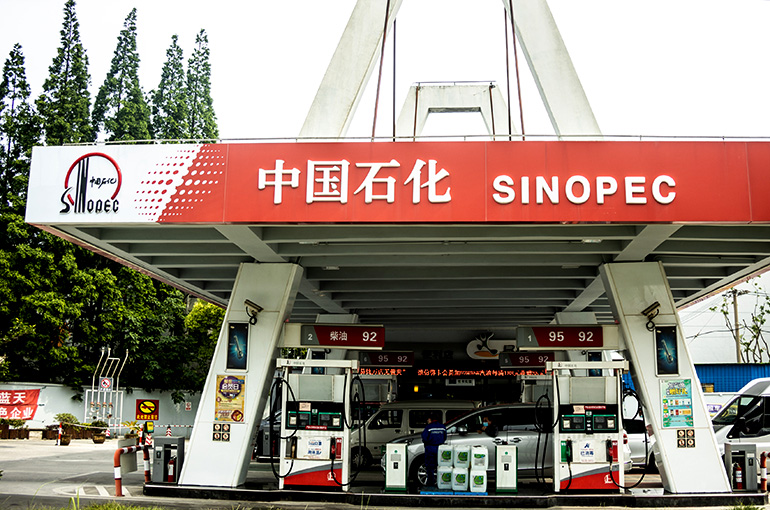 Sinopec Buys Into CATL; Duo to Build 10,000 EV Battery Swap Stations Together
Sinopec Buys Into CATL; Duo to Build 10,000 EV Battery Swap Stations Together(Yicai) May 23 -- Chinese oil major Sinopec, which has emerged as the biggest investor in Contemporary Amperex Technology’s blockbuster secondary listing in Hong Kong earlier this week, is linking arms with the Chinese battery giant to roll out a nationwide network of up to 10,000 electric vehicle battery swap stations.
Sinopec and CATL have already agreed to construct their first heavy-duty truck battery swap station in southeastern Fujian province, Beijing-based Sinopec said on May 21. The pair plan to build at least 500 battery swap stations this year alone, with a long-term goal of 10,000. The two parties will also work together in areas such as zero-carbon initiatives, microgrids, vehicle ecosystems and battery materials.
CATL raised HKD35.3 billion (USD4.5 billion) on its debut on the Hong Kong bourse on May 20, making it the world’s biggest public offering so far this year. Sinopec’s Hong Kong subsidiary pumped in USD500 million, becoming the largest cornerstone investor. In total, the 23 cornerstone investors contributed more than half of the amount raised at USD2.6 million.
The proceeds will help fund CATL’s international expansion, including the construction of its factory in Hungary, to consolidate the Ningde-based firm’s dominance as the world’s top battery supplier, the firm said. CATL currently holds 38 percent of global market share.
Around 90 percent of the amount raised will go towards building phases one and two of its battery plant in Hungary. Costing EUR7.3 billion (USD8.2 billion), the Hungarian factory has a planned capacity of 100 gigawatt hours. EUR700 million had already been invested as of the end of last year, and the plant is expected to be up and running next year.
Once completed, this will be CATL’s largest battery production site in Europe. It will also help the company avoid the US’ reciprocal tariffs of 25 percent and attract more business from major European automakers such as Mercedes-Benz, BMW, and Volkswagen.
Chairman Robin Zeng was CATL’s largest shareholder before the listing with 23.27 percent equity. This has now been diluted to 22.66 percent, but he still holds the top spot through his investment firm Xiamen Ruiting Investment.
Editor: Kim Taylor